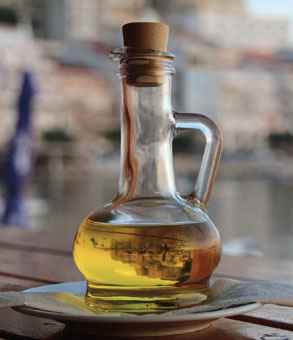
17 Sep Mechanics-chef
Mechanics-chef
Vegetable recipes in the workshop: is it possible?
When we mention vegetable oil, we all know what we are talking about. In naming it, it is natural to think of a good oil to use in the kitchen to flavor dishes and make them more pleasant
on the palate. Vegetable oil means oil that is not of animal or mineral origin; the plant origin, however, is not sufficient to guarantee that it is the healthiest choice. Just think of palm oil, which has recently been labeled by many as the origin of all evil!
Of course this is not the case, but we know that an unprecedented debate is currently underway in the food sector: supporters and detractors of organic are colliding to determine which foods are the healthiest. Beyond the quality of the product, if you dine in a restaurant with an extractor system that doesn’t work, you will come home smelling of fried food like a can of burnt oil!
So what happens when it’s not about restaurants but mechanical workshops? Does it really make sense to talk about a plant product? It’s time to clarify: it’s not fair to buy products that don’t exist! Did you make a green choice in your workshop by purchasing a “vegetable” oil? Yet it is clear that your working environment cannot be considered natural: certainly the shavings that your machine tools produce are not made of chocolate and you cannot eat them!
“Vegetable” is a term that is used improperly in mechanics, especially by salespeople who have no expertise in the matter and just ride the wave of a popular concept, trying to impress your ecological side.
There is an exact scientific term for what you bought, and it is the following: “ester of natural origin” or “organic ester” (there is also the inorganic one).
But what exactly is this ester? Now I’ll explain it to you. It’s a chemical reaction! Yes, you read that right. It is a chemical reaction between an alcoholic base and a carboxylic acid or a derivative thereof. What does it mean?

That the ester used in the “vegetable” coolant is in itself a chemical component, present in a percentage ranging from 15 to 50%. And the rest? It consists of other additives, always chemical. It is therefore difficult to define a lubricating-cooling oil as vegetable.
Taking note of this does not mean giving up the spirit of Greta Thunberg in you. It is right to preserve the planet and look for a cutting oil that does not harm people and the environment: for this purpose, there are modern and less impactful solutions. What you need to do is listen to those who inform you with scientific data, not the bin sellers! Who can you contact?
There is an international superpartes body: the global body Reach (Evaluation, Authorization and restriction of Chemicals, Regulation (EC) No. 1907/2006) that works to classify and disclose the effects of every chemical substance placed on the market. Since 2008 they have introduced CLP (Classification, Labeling and Packaging, Regulation (EC) No. 1272/2008 of the European Parliament and of the Council of 16 December 2008 on the classification, labeling and packaging of substances and mixtures), which takes care of informing you on how to handle and store the packaging of all the chemicals present in the Reach.
There is good news: each product you are using in the workshop is provided with a safety data sheet, drawn up according to the Rech legislation. Just read your coolant’s safety data sheet to find out the truth about what you use! Everyone has a duty to protect their health and the environment in which they live, but you have to do it in the right way.
The first step is to be aware of the fluids used, demanding safety data sheets and good quality products. The second action to take is to equip yourself with a refrigerant fluid management system, in order to guarantee a better quality of life in the workshop and eliminate waste and disposal that weigh on our planet, our only home.

